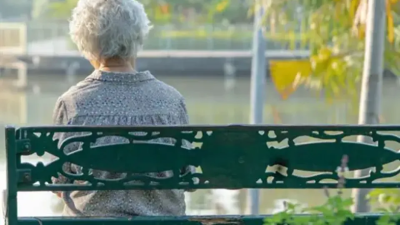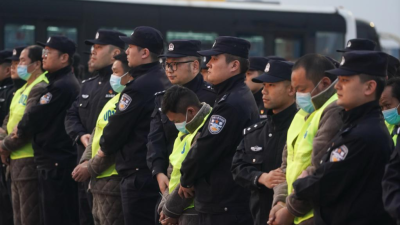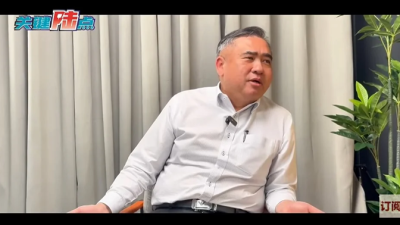 By Mariam Mokhtar
By Mariam Mokhtar
There is no point in denying that when it comes to safety at work, Malaysia fails miserably. If anecdotal evidence is to be believed, few companies appear to conform to the stringent safety work practices, because they are costly, hard to enforce, it is expensive to hire trained personnel, and many companies just look at the profits.
All accidents, no matter how small, should be investigated carefully.
Last week, a worker at a glove factory lost his palm, when his hand was caught in the rotating shafts of a glove washing brush. The worker's hand was severed at the wrist. This is a life changing accident.
How will he fasten the buttons on his shirt, or tie his shoelaces? If the hand is the one he normally writes with, he will have to learn to write with the other hand. Will the company pay for a prosthetic limb? Will his insurance payout be sufficient as he will find difficulty getting another job? How will he provide for his family if he is the breadwinner?
What will the investigation conclude? Was there a safety guard for the machinery, or was it pushed out of the way, as the company is chasing higher productivity, because of the world-wide demand for gloves?
Last September, a 25-year-old woman, who was driving from Sungei Besi towards Ampang along the Middle Ring Road 2 (MRR2) cheated death, when a concrete slab from the construction of the Sungei Besi-Ulu Klang Elevated Expressway (SUKE) fell and crushed her car.
She was rescued by members of the public but her left arm was injured.
Yesterday, the Malaysian Construction Industry Development Board (CIDB) issued a statement to say that the main contractor and sub-contractor of the SUKE project had been fined for failing to ensure safety at the construction site. The main contractor, MRCH Builders Sdn Bhd, had been fined RM80,000 and the sub-contractor, Makna Setia Sdn Bhd, RM100,000.
The companies were fined under Section 34B (1) (c) and Section 34C(1) of the CIDB Act 1994 (Act 520) which states that it is the contractor's duty to ensure the safety of building and construction works either during or after construction.
The CIDB said that their investigations found that the sub-contractor did not follow the proper work procedures and its site supervisor had no accreditation.
It added that the sub-contractor had been "instructed to make improvements in safety procedures including sending employees, site supervisors and construction managers for accreditation."
The CIDB had also ordered the sub-contractor to engage a third party to conduct a security audit on project safety, work procedures and operations as well as construction site management.
Is that it? The CIDB wants the sub-contractor to perform security audits and a proper independent analysis, but the accident has already happened. The audits should have been done before the contract was awarded.
Did the CIDB find out how the sub-contractor managed to secure the job with the main contractor, despite not having an established schedule of safety procedures, work procedures and competent personnel?
The main contractor has a lot to answer for this accident, too. Are they cutting corners and engage the cheapest sub-contract? Trained personnel cost money. Refresher courses for site supervisors also cut into the profits.
Did the CIDB ask how often both the main and sub-contractors perform safety audits and review work procedures?
How well are the construction staff vetted – from the casual construction laborers to the site supervisor? What is the punishment for not adhering to safe work practices? Are the workers fined or instantly dismissed? How often do the project managers perform spot checks and analyze potential hazards?
The woman was lucky that she did not die because of the negligence of both the main and sub-contractor. Has she been compensated for the hospitalization, the loss of her car and follow-up treatment? She could be traumatized to get into a car again.
How do other road users know that the safety on these highway projects can be trusted? How well is the CIDB performing safety audits on its own staff?
What about the main contractor? It failed to make proper checks on its sub-contractor.
Malaysians know only too well, that as soon as an accident occurs, there will be a Stop Work Order, followed by a site visit by the relevant minister.
He will also visit the victims, in hospital, for the photo opportunity and press coverage to show that he cares. The relevant body will perform an investigation and all the companies will give their full cooperation.
After a few months, the main contractor and the sub-contractor will be fined. The directors will not be charged and will escape scrutiny, then things will return to normal, after a minor slap on the wrist, in the form of a paltry fine. Are these crony companies? This cycle will be repeated when the next accident occurs.
We should stop pretending that the Malaysian authorities are serious about stopping accidents at work.
Source:
1. Free Malaysia Today: Woman cheats death after concrete slab falls on car
2. MalaysiaKini: SUKE contractors fined RM180,000 for failing to ensure site safety
3. MalaysiaKini: Top Glove worker's hand chopped off in factory mishap
4. MalaysiaKini: Works Ministry to monitor contractors after unsatisfactory Pan-Borneo highway check
5. MalaysiaKini: Probe ordered after two injured in Pan-Borneo Highway site beam collapse
(Mariam Mokhtar is a Freelance Writer.)
ADVERTISEMENT
ADVERTISEMENT


































